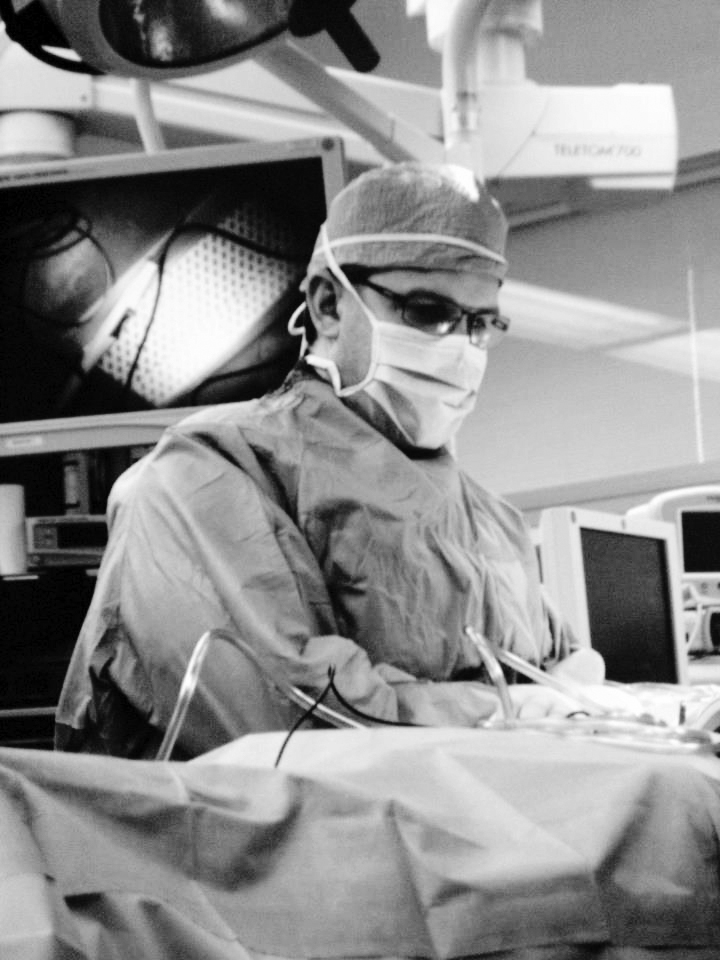Come Monday morning, Christopher Duntsch will appear in court for the first day of his trial.
You may remember Duntsch from our November cover story, which followed the neurosurgeon from his time training in Memphis to his arrival in North Texas and the lengthy series of disturbing patient outcomes that followed. Duntsch has been confined to Lew Sterrett since July 2015, after being indicted on five counts of aggravated assault with a deadly weapon and one of injury to an elderly person. The ex-prosecutors and defense attorneys I spoke with while reporting that story could not recall a surgeon who was indicted for what happened inside their operating rooms during surgery. Two individuals died after a Duntsch operation. Kellie Martin bled out at Baylor Medical Center at Plano after her vertebral artery was severed. Five months later, at Dallas Medical Center, Floella Brown had a stroke after her vertebral artery was damaged. She was declared dead after being transferred to UT Southwestern.
Fourteen patients sued Duntsch during the two or so years he had a license to practice. Court documents show that the Dallas County District Attorney found a total of 34, which they allege he “intentionally, knowingly, and recklessly caused bodily injury and/or serious bodily injury.” It took more than a year for the Texas Medical Board to revoke his license after first receiving complaints. He wound up receiving privileges at four area hospitals and allegedly harmed patients at each.
Duntsch is an anomaly. It’s rather difficult to secure a criminal conviction of a physician related to the care he or she provided because of the burden of proof. The prosecution will likely need to prove that Duntsch was operating with a gross deviation from the accepted standard of care. Toby Shook, a former Dallas County prosecutor, says they’ll likely have to show that Duntsch was “aware but that he consciously disregarded a substantial and unjustifiable risk.”
“And the risk must be in such a nature that its disregard suggests a gross deviation from the standard of care that an ordinary person would recognize under these circumstances,” he said. “Basically, the doctors (who testify) will have to say that whatever he did was so out there that he was disregarding a justifiable risk.”
Going all the way back to medical school at the University of Tennessee Health Science Center, Duntsch has been dogged by allegations of drug and alcohol abuse. He took partial blame for only one of those injured patients, Mary Efurd, who woke up after a procedure with searing pain and unable to stand. Duntsch said he was so distraught from Brown’s outcome that he misplaced a screw. He doesn’t mention the hardware left in Efurd’s soft tissue or the severed nerve root or the rogue screw holes far from their desired location, all of which was observed by the physician who was called in to correct the operation.
That surgeon, Dr. Robert Henderson, is listed among the 80 witnesses that prosecutors plan to call to the stand. So too are Drs. Mark Hoyle, Randall Kirby, and Martin Lazar, all of whom ran Duntsch up the ladder upon seeing his outcomes. There are anesthesiologists and hospital administrators and office staff. There is Kimberly Morgan, Duntsch’s surgical assistant with whom he had a sexual relationship. Other documents show that the state will attempt to prove that Duntsch made false or misleading statements about eight patients he is accused of harming, that he snorted cocaine from his pen caps, and that he attempted to have a medical staffer alter Brown’s medical records to make the bleeding look like an effect of her not taking blood thinners instead of something else.
Documents filed by the defense argue the opposite: They have testimony from a Dallas psychiatrist that Duntsch didn’t show signs of substance abuse and did not meet “the diagnostic criteria for Narcissistic Personality Disorder.” A witness says Duntsch was upset with the radiologist during Efurd’s surgery with the poor quality images she was providing. Others say they never saw Duntsch drink or use drugs and note that two of the state’s witnesses provided expert opinions in civil lawsuits against Duntsch.
The trial begins at 8 a.m. Monday in Dallas County Criminal Court No. 5.





